Keeping as relaxed as possible, I began to move up and improve my position gradually, edging ahead of the Gurkhas one by one, and passing Dorrance just before the 2km marker. I was now leading the Men’s Open category, with the three Kenyans the only ones still in front of me. They had gone off to a fiery start and were at least 30 seconds clear of the rest of the field.
Determined to keep my sights set on them, I decided to step up my pace slightly. My arms and legs were responding well, and despite an increase in pace, I still felt so easy. I was really in the zone for this race, cruising along effortlessly, and it seemed that all my sacrifices made over the past months were paying off.
The three-kilometre mark was passed in 9min 50sec, and I was still running smoothly and relaxed. Sneaking a quick glance back, I saw nobody close behind me. I was now in no man’s land – too far behind the Kenyans to use them as pacemakers, with the chase pack too far behind to give me any push whatsoever. By this point, I knew that the Men’s Open title was in the bag, but also that if I was going to run a good time, I would have to push on myself, without relying on anybody else for help.
Cutting in from the main road, I soon found myself running along the scenic Jurong Lake as the race route brought us into the park. Amidst the morning joggers and bubbly route marshals, I passed the 5km distance marker in 16min 25sec, right on schedule for a sub-33 minute finishing time. As I am usually a strong finisher, I had planned to take it easy for the first half of the race and bring it home hard in the second five kilometres.
Seeing that I only needed about a 16:34 for my second five kilometres to break 33 minutes was a great encouragement, and my spirits were lifted as I now began to reel in David Kipsang, who had dropped off the other two Kenyans and appeared to be fading badly. However, I was still about 40 seconds behind, and really had my work cut out if I was going to catch up with him.
As we entered the Chinese Gardens, fatigue started to get the better of me and it took more and more effort just to keep going at the same pace. Thankfully, I had Kipsang as a target, someone I could focus on chasing, and use as a gauge to determine whether I was slowing down and how much harder I had to push. The race volunteers were really helpful as well, enthusiastically cheering the runners along as we sped around the gardens.
Slowly but surely, I chipped away at the massive lead Kipsang had established over me, and as he stepped onto the bridge linking the Chinese and Japanese Gardens, I stole a glance at my watch. Then, as I took my first step onto the bridge, I looked at my watch again. The gap had been narrowed to approximately 25 seconds. I chased him hard through the Japanese Gardens, and found that we exited that area of the race a little quicker than expected. Putting that thought on hold, I continued my pursuit of Kipsang along the sourthern area of Jurong Lake.
By now, the fatigue accumulated in my body was starting to become paralysingly painful. Despite my best efforts to keep loose and relaxed, I inevitably began to tighten up. My legs and arms felt filled with lead, and my face was contorted into a painful grimace. I soldiered on into the final kilometre of the race, having shaved the previously huge lead that Kipsang had over me to a mere 10 seconds. Crunch time.
The American writer Arthur Golden once said, “Adversity is like a strong wind. It tears away from us all but the things that cannot be torn, so that we see ourselves as we really are.” As I passed the 9km marker of the 2012 Jurong Lake Run, I certainly found myself in a very adverse situation. Legs hurting, arms aching, throat dry from all the hard panting and chasing a Kenyan running machine, I found myself in a dilemma.
In every training run and race that I have taken part in since first picking up running in 2004, two voices belonging to two opposing natures of my personality appear in my head during the times of my greatest suffering. It was no different on this occasion.
The voice of my reserved, conservative self was heard first.
“Let’s give it up. You’re tired, you’re hurting, you’re 10 seconds behind a guy nobody expects you to beat. Just cruise to the end, you’re going to win your category anyway.”
I listened and began thinking to myself: “Yes, I’ve already done so well to get so far. The Kenyans are thought to be invincible and nobody expects me to defeat them. I’m too far behind anyway, making up a 10-second deficit in a single kilometre is unthinkable. Maybe I should just close shop and live to fight another day.”
No sooner had those thoughts crossed my mind, when the other voice, the one belonging to my ambitious, aggressive self, angrily bellowed in my head: “Don’t be a coward! So what if he’s not competing in your category? As a sportsman, you never surrender to others, no matter how strong they are, and always strive to be the best you can be! Giving up before the end? Where’s your desire?!”
That was my wake-up call. As an athlete striving to achieve great things, racing should be in no way a struggle against one’s opponents, but rather against oneself. Opponents are there to help me push myself to new limits, and not for me to be limited by them.
Ashamed that I had even contemplated surrendering to Kipsang, I drew a surge of adrenaline from deep within my emotional reserves, and with firm intentions, began my finishing surge. Dashing past the cheering supporters, I rapidly reduced the gap on Kipsang. I was in intense pain by now, but somehow, I could sense that the noise from the spectators was becoming louder with every step nearer I got to the Kenyan.
Following the directions of route marshals, I made a right turn, covered 300m at a screaming pace, then made a sharp left and saw the finishing line just another 200m ahead. I shifted into top gear and began my final sprint. The remainder of Kipsang’s lead was quickly swallowed, and the noise from the crowd went up a few notches as I first pulled alongside Kipsang, then blew past him as if he was standing, less than 100m before the line.
The supporters went bananas. A local lad was on the verge of beating one of the seemingly invincible Africans.
However, Kipsang was not done yet. He too drew on his reserve energy, and fought back hard, pulling even with me within seconds. Eyes closed, I drove my arms hard and blasted out the rest of the life in me, only opening my eyes again just as I crossed the finish line in 31min 47sec.
Kipsang had finished a step in front of me.
Smiling, I shook the hand of my Kenyan counterpart and offered my congratulations, before bending over, hands on knees, struggling to catch my breath. Once I had gathered enough energy, I began walking slowly, and broke into a cool-down jog soon after, slightly disappointed that I had allowed Kipsang to fight his way back after I had passed him in the finishing straight, but satisfied that I had given it everything I had got, won the Men’s Open Category and ran a great time of 31min 47.07sec in the process, just 0.26s behind Kipsang’s 31:46.81.
Suspecting that my finishing time was a little too good to be true, since my previous best for 10km was 33:59, I clarified the matter with event vice-chairman Allan Teng, who confirmed that a 300m loop in the Japanese Gardens had been deemed too slippery after the heavy downpour and omitted due to safety concerns. At my pace, that would have cost me another minute at most, so I was still relatively happy with my massive 10km personal best time of about 32min 47sec.
The few road races that I do take part in are limited to those which have delivered well year after year, proved to be worth their registration fees and earned the trust of runners, such as the International Association of Athletics Federations (IAAF) Gold-labeled Standard Chartered Marathon Singapore, or races that I run as part of my allegiance to a corporation or army unit such as the Army Half Marathon.
The Jurong Lake Run was a pleasant experience and a great success in the simple aspects as to what constitutes a race. Race routes were measured accurately, baggage was easily deposited and retrieved and route marshals were alert in directing runners correctly.
Despite being only two years old, both editions of the run have been organised very well, and it looks increasingly likely to become one of the most popular road races in Singapore. I am happy to have had the chance to run in both the 2011 and 2012 editions, and look forward to being a part of it again next year.
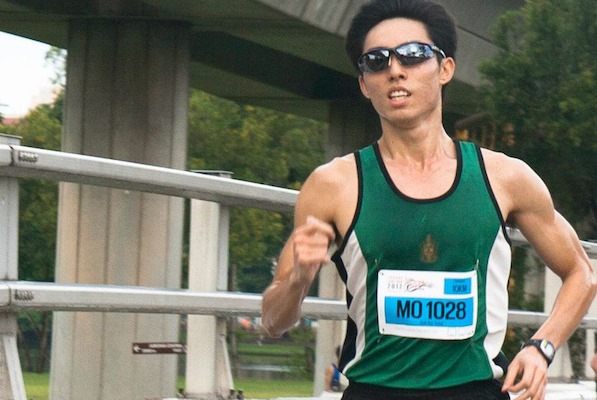
Soh Rui Yong on his way to a 1st place finish in the Men’s Open category and 4th place overall behind 3 Kenyans at the Jurong Lake Run. (Photo © Soh Chui Lian. Courtesy of Soh Rui Yong)

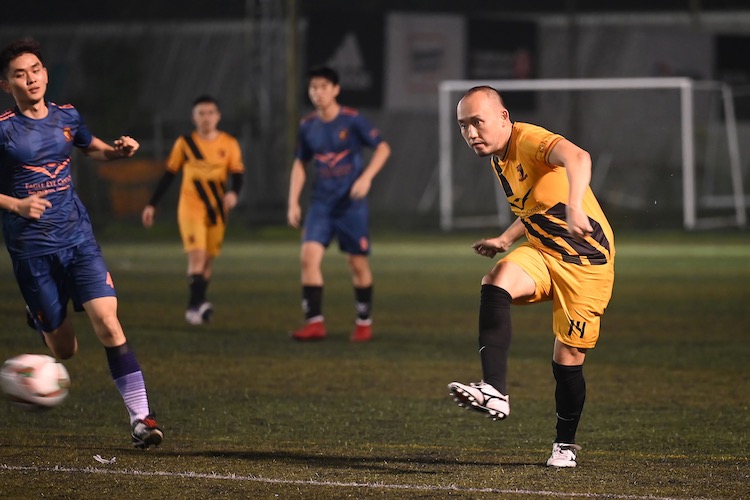
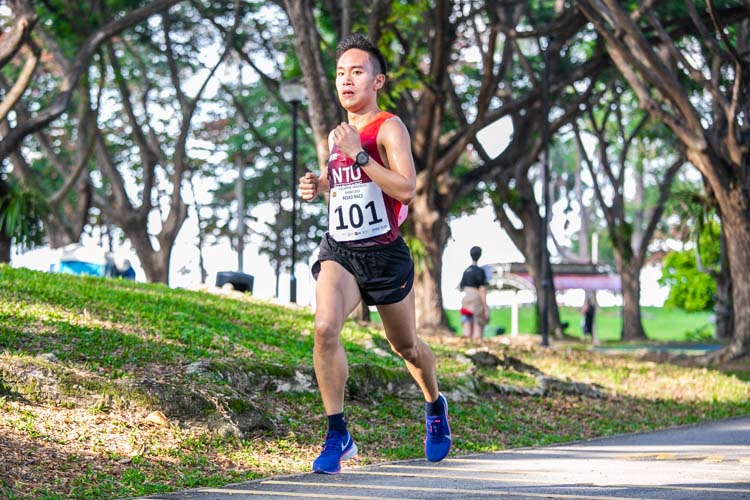
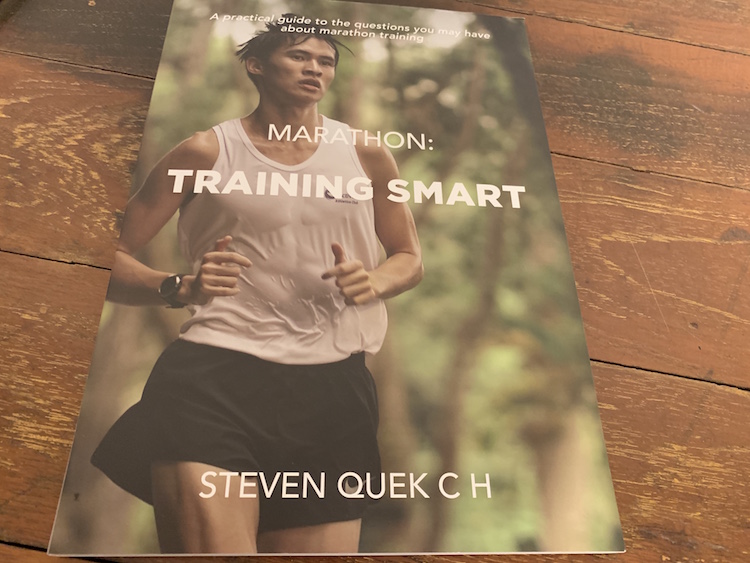
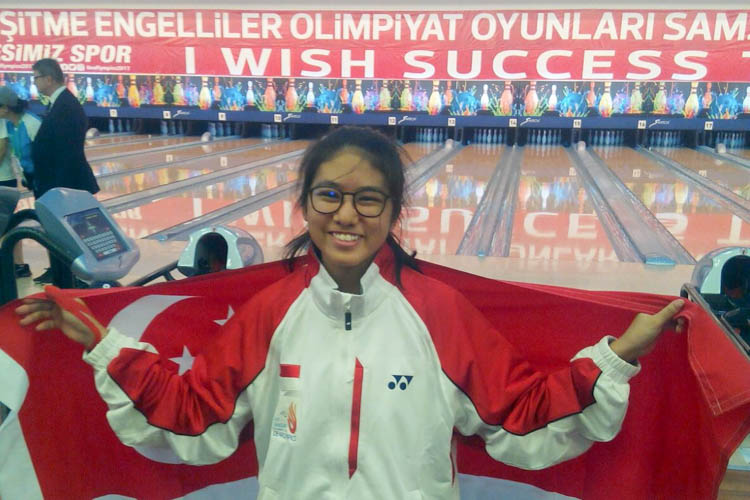
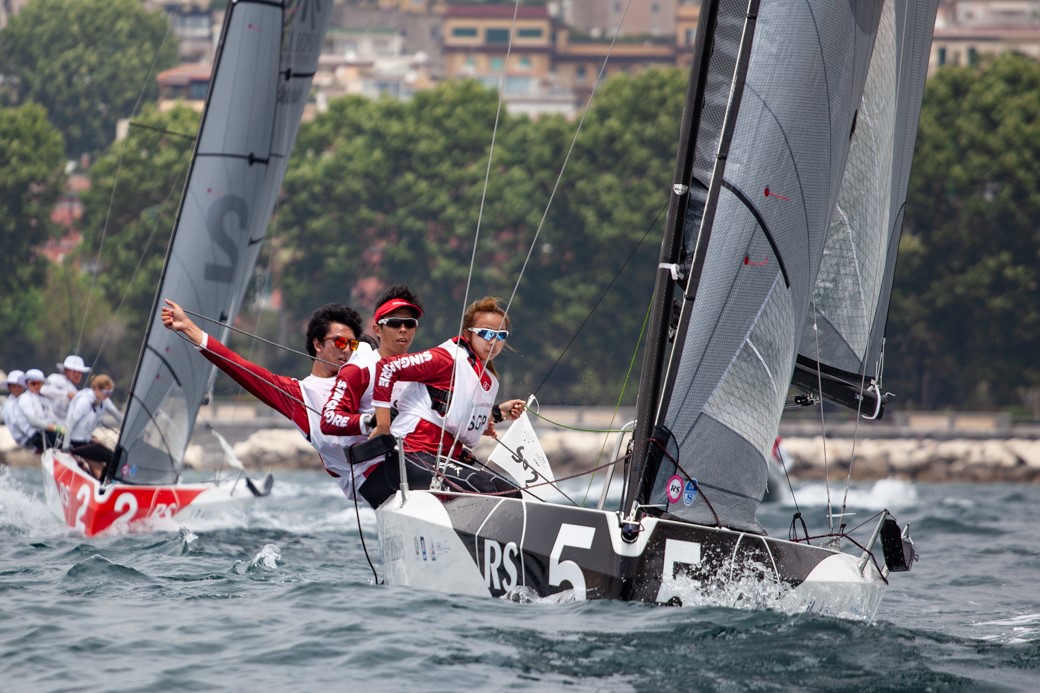
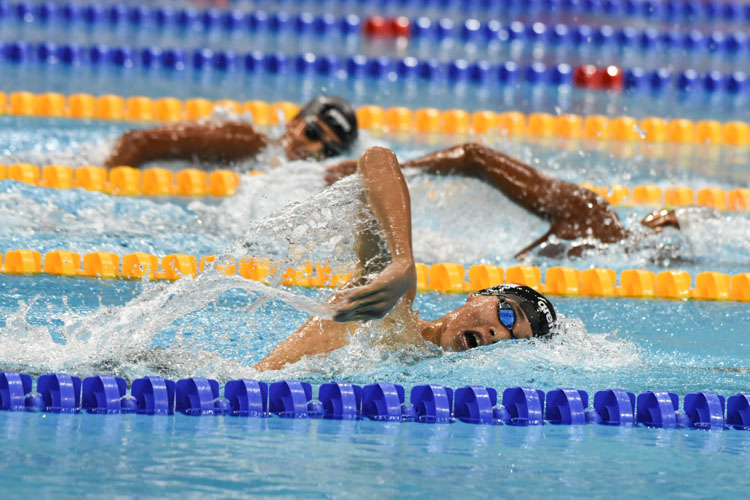
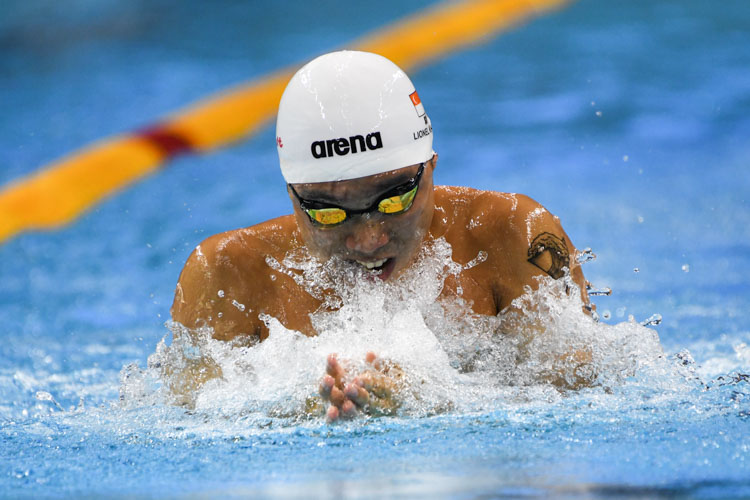
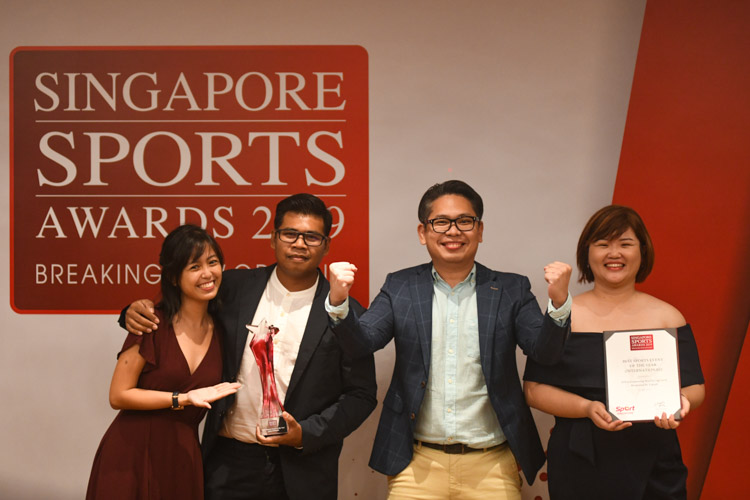
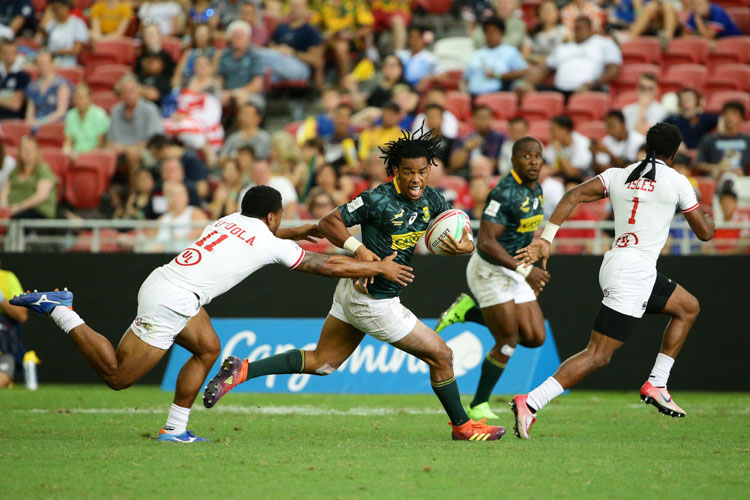
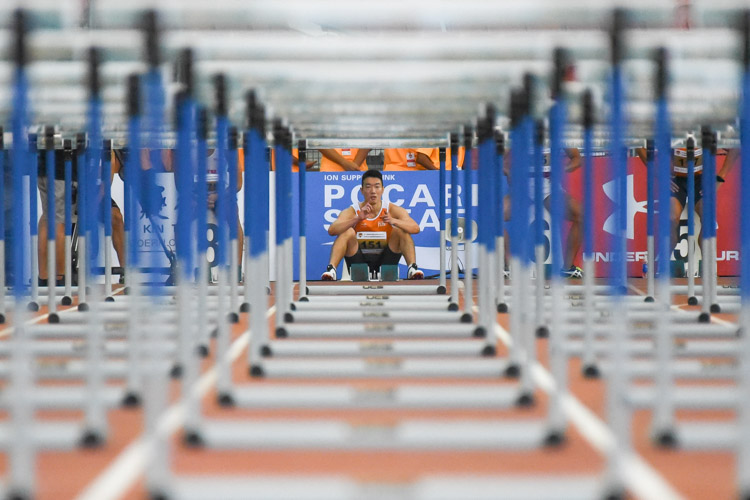
Leave A Comment